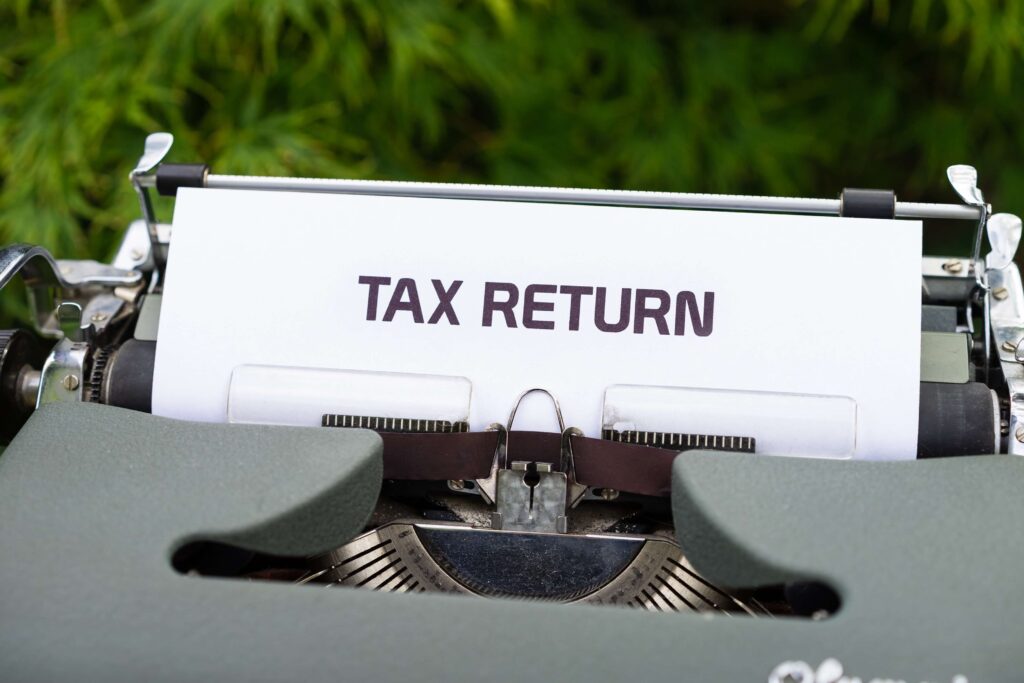Accounting and taxation are basically linked together, even though these are two separate entities. Accounting procedures are an integral part of taxation, and the calculation of figures and financial statements are monitored by accountants. Accounting is vital for the calculation of tax.
Let us explore the interesting link between accounting and taxation, accounting is not always related to taxation, However, taxation is always connected to accounting.
Accounting is not only a career, but it is a significant skill that everyone uses in their life daily. Accounting is considered an indispensable part of the business world. Many ways we use accounting tasks in real life too. Let us see how is it being used?
When did you last log into your bank account? What was your intention? What do you normally do when you get a credit card statement? Most probably, you will verify all charges to make sure its accuracy as well as keep track of your income and expenditure. What do you do here exactly? You are doing reconciliation, confirming you are charged correctly. This is an example of using accounting in everyday life.
Perhaps, you might be thinking is there any other example to point out? Let’s learn it in line with our daily expenses. What does mean budgeting? Are you able to create a good personal budget? If you spend more than you have, it is not a wise thing for creating a safe and secure life. Additionally, overspending will acquire you extra banking fees. Let us see what can you do to prevent such unhealthy financial habits? To get past this unpleasant situation people usually set a budget for their expenditure. Perhaps, you can create a personal budget to avoid overspending.

How do you create a personal budget? For that, firstly you will have to look at your income and expenses, Then you will allocate money for each item by making sure you are covering up everything until your next paycheck arrives. Sometimes, along the process, you choose the areas where you will want to spend, and where you want to cut down some expenses, to keep some amount as savings.
The accountants do the same work for businesses, and all other organizations, intending to make a profit. The tasks they undertake are monitor cashflows, expenses, inventory, etc. Their aim is to create a certain balance at the end of each period. Accountants’ main job and duties are to create a plan for a strong financial future.
When you think about how to come up with cash to do certain significant things in your life, you are using your inherent accounting skills to improve your financial health. Likewise, accountants steadily work to develop the financial health of their organizations. They do it mainly by investing, creating saving goals, managing debt, and productivity.
It is a known fact that accounting plays a critical role in every business, even though it’s considered a dull job at times. There has always been a need for accounting graduates, whose job growth outlook is promising. Therefore, earning a degree in accounting increases your employability.
Whether you are studying accounting and taxation or plan to study it, I wrote a blog for you that includes 30 questions related to the field of accounting and taxation. I hope you may find it helpful and interesting.
Here are the 30 questions pertaining to accounting and taxation, and later in this blog I will be introducing you to some fantastic accounting and taxation courses from Henry Harvin Accounting academy as well.
Q1. Talk about different types of accounting?
Accounting that is focused on the administrative aspects of the company is known as administrative accounting. Its focus is to evaluate whether the determined objectives are implemented effectively or not. It is helpful in making forecasts and planning the actions and resources.
Recording the economic and financial data of a company to make all decisions including and short-term and long-term is known as the management accounting.
The type of accounting that focuses on the industrial companies and is helpful in making the unit cost of production, sales, and it mainly monitors the production process of the company is known as cost accounting.
When you use accounting to organize the statements and disclose them to the Government for the payment of tax is known as Tax accounting.
If the accounting documents and encapsulates the business transactions that take place in a company for a period is known as financial accounting. Both private and public sectors use it alike.
Q2. State the difference between accounting and auditing
An accounting process involves maintaining financial transaction records and preparing financial statements. It takes place continually and should be done every day, focusing on current activities and transactions. This process is done as per accounting standards by internal employees, appointed by management.
Its deliverables are income statements, profit, and loss reports, balance sheets, and class flow report. It is vital for all businesses including small and big.
Auditing is the key inspection of financial statements to give an opinion on their justice. It is carried out only after the preparation of final accounts. It is a periodic activity done by auditors, they are the external employees or independent agencies and are appointed by stakeholders.
The focus of auditing is on past financial statements, and it is to check the accuracy of the financial statements. This process is governed by standards of auditing. Auditing adds credibility to the financial statements of the business. The deliverable of auditing is the audit report.
Q3. Name the different types of GST taxes in India
- CGST
- SGST
- IGST
Q4. What are overhead expenses?
You must spend money to keep your company running and it will reflect on your monthly statement is known as overhead expenses. Tracking and classifying your overhead will help you keep track of expenses. Overheads help increase profit-creating activities for the business, but you can’t directly connect it to making a product or service.
Examples of overhead costs are rent, utilities, insurance, repair of machinery, and maintenance of motor vehicles.
Q5. If there is a loan on an asset, can it still be considered an asset?
An asset that has a loan on it can still be considered an asset, but the amount of the unpaid loan or mortgage must be deducted from the equity of the asset.
Q6. Why do accountants prepare balance sheets once a month?
Because a balance sheet report confirms the equality of the debit and credit entries in a General Ledger. If there is a mistake in the general ledger accounts, it can be found and corrected before the next month’s transactions are recorded.
Q7. Give examples of some assets that are depreciated
- Computer systems
- Trucks and automobiles
- Land improvements such as parking lots, outdoor lighting, etc.
- Buildings excluding land
- Machinery and equipment
- Furniture and fixtures
Q8. Can you tell why is it important to have a debit and a credit part for each transaction?
Each transaction of the same amount needs a debit part and a credit part because these two parts must remain equal after each transaction. This is known as double-entry accounting, and the accounting equation must be in balance at any time in the accounting cycle.

Q9. Name two classifications of accounts that go in the Income statement section
Revenue and expenses.
Q10. Give a brief explanation of the double-entry accounting system
Double entry is a system in which every transaction impacts at least two accounts. It also keeps a balance between debits and credits. The benefit of this methodology is it lowers the chances of accounting errors. Many companies use a double-entry system, regardless of whether they are small or big, to run their business. All public companies use a double-entry accounting system. The accounting equation for the double-entry system is Assets are equal to liabilities plus equity, and this equation should be balanced all the time. This double-entry system is compatible with Generally Accepted Accounting Principles (GAAP).
Q11. How many types of accounting are there in double-entry accounting systems? What are they?
The five types of accounting in the double-entry accounting system are:
1. Assets Accounting: It includes properties of the company that signifies the potential financial values of the establishment. Cash, accounts receivable and equipment are a part of assets accounting, and it has got debit balance.
2. Liabilities Accounting: It includes amounts are to be paid by the company. Loans, expenses, and payables form the liabilities. It has got a normal credit balance.
3. Equity Accounting: It involves the funds invested in a business by owners of the business as well as all retained income resulted from operations of the company. Examples of equity accounts are funds from investors, retained earnings, and common stock. It is increased on the credit side and has a credit balance.
4. Revenue Accounting: It involves cash resulted from company operations such as the sale of products, service fees, income earned as interest, etc. Revenue accounting increases via credits and has got credit balance.
5. Expenses Accounting: In this type of accounting, expenses are the costs of running the business; examples are the account of the inventory, a salary account, and a depreciation account. Expenses accounts are debt-oriented with a zero balance.
Q12. What is liability?
Liability is the responsibility to another company or persons that includes delivering goods, providing services, or paying money. Account payables, interest payable, dividend payable, bonds payable, resources for tax payment, customer deposit, loans, etc are liabilities of a company. It is being recorded on the right side of the balance sheet.
As per the accounting equation assets is equal to liabilities plus equity, therefore, you can find out liabilities by rearranging the formula in this format, liabilities are equal to assets minus equity.
Q13. What are the different types of ledgers?
There are 3 different types of ledgers which are general ledger, debtors ledger, and creditors ledger.
Q14. List out different types of liabilities? Give examples for each type?
The common liabilities are current liabilities, fixed liabilities, contingent liabilities, and capital or equity liabilities.
- Current Liabilities are the responsibilities that are payable within 12 months. This type of liability is short-term, it occurs because of business activities. Examples are bills payable, and bank overdraft.
- Fixed Liabilities are long-term obligations, and those are not payable within a year, they have resulted from the purchase of fixed assets. For e.g., long-term loans, and bonds payable.
- Contingent liabilities are happened in a business depending on the result of a future incidence. If there is no such occurrence, the company is not liable to pay anything. Examples are lawsuit proceedings and guarantee for loans.
- Capital or Equity liabilities are the internal liabilities, and these are the amount payable to the proprietors as the capital or owner’s fund. For example, profits.
Q15. What are the popular ways of keeping accuracy in accounting?
The popular ways of keeping accuracy in accounting are:
- Keep the accounting books up to date
- Save invoices and receipts
- Recognize revenue streams
- Keep separate accounts for personal and business
- Maintain the backups
- Preparation of financial statement to avoid penalty.
- Create financial statements.
Q16. What are credit notes and debit notes?
A credit note is a document the seller gives to buyers to notify them that they have received back the goods for which they are credited.
A debit note is an intimation sent by the buyer to the seller when the buyer returns the goods to the seller. Here the buyer requesting the return of money.
Q17. What is inflation accounting?
When there is a high Inflation, the prices increase, therefore, during this time of inflation some accounting techniques are being used, its purpose is to deal with the impact of past cost accounting. These accounting techniques are known as inflation accounting.
Q18. What is property tax?
The landowners pay an amount of money to the local government of their area is called property tax. It is a yearly payment. The buildings and properties that are rented out to third parties are considered real estate. The government charges taxes on all actual real estate that the individuals own.
Q19. What is advance tax?
The individuals who have other sources of income except their salaries are liable to pay advance tax. Other sources of income include rent, gains from shares, fixed deposits, etc. You should pay advance tax in the same year in which the income was received.

Q20. Briefly explain what is GST and how does it work?
GST is an indirect tax that was introduced on July first, 2017. It is having a broad nature; the key objective of this taxation was to reduce the causes of failing several other indirect taxes. GST replaced other indirect taxes such as value-added tax, service tax, purchase tax exercise duties, etc. GST tax is applicable across India.
Q21. What is TDS?
A tax deducted at source (TDS) system was introduced for the purpose of obtaining tax, at the point of production, where it is generated. It was designed to minimize tax avoidance by collecting the tax at the same time it is generated. Varied incomes such as salaries, interest earned, the commission obtained, dividends, etc. are subject to TDS.
Q22. What are the basic elements of accounting software?
- Invoicing
- Account payables
- Account Receivables
- Profit and loss statements preparation
- Balance sheets preparation
- Cash flow statements
- Online payments collections from clients
- Synchronization of Bank and credit card
- User access to accountants or tax professionals.
Q23. Name some of the popular accounting software for small and medium businesses
- My books
- Vyapar
- Zoho Books
- Giddh
- Logic
- Profit Books
- Saral
- Wave Busy Accounting Software
- Quick Books India
- Tally.ERP9
- Marg ERP9+
Q24. What is depreciation?
The depreciation process involves distributing the cost of a business asset to the accounting periods in which it is used. It measures the amount of value an asset loses, and loss of value happens because of ongoing usage, wear, and tear, by the launch of the new product, inflation.
Q25. How do you balance an account?
To balance an account you have to find out the difference between the total amount debited and the total amount credited to the account.
If an account has only one entry, still the balancing is done, for the purpose of showing all the accounts have been balanced simultaneously.

Q26. Name the accounts which are having debit balances and credit balances
The accounts having debit balances are asset accounts and expenses accounts whereas, the revenue accounts, liabilities, and capital accounts have credit balances.
Q27. What are the nominal accounts?
The accounts that are related and connected with losses, expenses, income, or gains are known as nominal accounts. Accounts such as purchase account, sales account, salary account, commission account, etc. are nominal accounts. Its result can be either profit or loss and which are basically moved to the capital account. A nominal account is a temporary account and its starting point and ending points are zero balances, while the year is progressing, it collects gains and losses but again becoming zero balances at the end of the accounting year as the balance will be moving to a permanent account.
Q28. What are fictitious assets?
Fictitious assets that are intangible without any concrete reality, still are signified as actual cash expenditure. These expenses can not be placed in any other account headings. As the name implies these are not real, however, carried forward to the next years until the amount is fully repaid.
For example, expenses for patents, trademarks, copyrights, and goodwill cannot place in any headings.
Q29. What is a cash flow statement?
The cash flow statement includes the cash generation and its usage during the accounting year or month. The activities that are a part of cash flow are operating activities, investing activities, and financial activities.
Q30. What is a standard journal entry?
A standard journal entry should include the date of the business transactions, the name of the accounts involved, the amounts to be credited or debited, and a brief description of the trade.
You have just gone through 30 accounting and taxations questions. If you are still interested in exploring some of the accounting and taxations courses from prestigious Henry Harvin Education keep reading the rest of this blog.
Henry Harvin Education offers two types of accounting and taxation courses. The first one is the Certified Accounting And Taxation Course (CATP), and this is a comprehensive course that teaches all aspects of accounting such as GST, Income Tax, and TDS, etc.
This course provides 172 hours of live online interactive sessions. Each participant student gets certification from Henry Harvin®, it is a Govt of India-recognized and Award-winning Institute. To get a detailed curriculum and other learning benefits click on Certified Accounting And Taxation Course page.
Henry Harvin Education’s second course is known as a post-graduate program in accounting and taxation. This program provides 6 months of live online interactive sessions. As a participant, you are eligible to get course certification that carries the Hallmark of PGAT next to your name. You are eligible to receive a guaranteed internship as well as projects in accounting, taxation, and Excel, etc. To learn more about learning benefits and career benefits visit the course page.
Conclusion:
I hope this blog is helpful for getting answers to some of your questions. Accounting and taxation are evergreen skill sets, and they will increase your employment opportunity. Do you want to improve your skillsets in taxation and accounting? If your answer is Yes, enroll in Henry Harvin Education’s accounting and taxation courses.
Recommend Courses
Income Tax Specialist Certification Course
GST Course – Live Online GST Course | Get GST Practitioner Certification
FAQs
Yes, if excess tax is paid, you will get a refund. The government will refund the excess amount back to your bank account that is linked with your PAN, via Electronic Clearance Service (ECS).
When manufacturers sell their own product to customers at a certain price, and it is a price inclusive of packaging charges, insurance charges if there is any, and sales tax paid by manufacturers are known as the sales price.
If anyone sends goods from one state to another for selling them to the customers is called inter-state sales.
No, the property tax is determined by your local administration. For example, municipal corporations.
The landlord is legally responsible to pay property tax, not the tenant.






The Accounting and Taxation Questions & Answers on Best Course News are a gem! The explanations are concise yet thorough, making complex topics easy to grasp. Whether you’re a student or a professional, this resource will definitely enhance your knowledge and problem-solving skills.
The Accounting and Taxation Questions & Answers provided on this website are incredibly helpful. The comprehensive explanations and examples make it easy to understand complex concepts. I highly recommend this resource for anyone studying accounting or preparing for tax-related exams.
For those interested in Accounting and Taxation, this website provides a well-organised collection of questions and answers. It’s a valuable resource for both beginners and experienced professionals looking to deepen their knowledge.
The website’s collection of Accounting & Taxation interview questions and answers was impressive. The content was concise yet informative, presenting key concepts and scenarios that professionals in the field encounter. A useful resource for brushing up on essential knowledge.
As taxation laws and regulations can be complex, it’s always a good idea to seek answers to your questions from reliable sources. this course is very good learning for student.